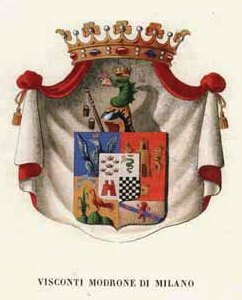Luchino Visconti
Luchino Visconti (2 November 1906 – 17 March 1976) was an Italian theatre director, film director, and screenwriter. Visconti was one of the prominent figures in Italian neorealism, contributing to the movement with films that detailed the lives and struggles of the poor and the working class. His work is admired for its meticulous attention to historical detail, opulent visuals, and exploration of themes such as sexuality, class conflict, and human desires.
Early Life[edit | edit source]
Born into the aristocratic Visconti family in Milan, Luchino Visconti di Modrone, Count of Lonate Pozzolo, was initially destined for a career in the military or diplomacy. However, his early exposure to the arts, particularly theatre and opera, influenced by his mother, a prominent socialite, led him to pursue a career in the arts. Visconti's aristocratic background would later influence his cinematic style, characterized by its lavish detail and historical accuracy.
Career[edit | edit source]
Visconti's career in film began in the 1930s when he traveled to Paris and worked as an assistant director to Jean Renoir, a prominent French filmmaker. This experience was instrumental in shaping his directorial style, which combined Renoir's naturalism with Visconti's own sensibilities towards realism and melodrama.
In 1943, Visconti made his directorial debut with Ossessione, which is considered one of the first neorealist films. The film's gritty portrayal of love and murder in the Italian countryside was a departure from the Fascist propaganda films of the era and laid the groundwork for the neorealist movement.
Visconti continued to explore social and political themes in his work, including La Terra Trema (1948), an epic portrayal of Sicilian fishermen's lives, and Rocco and His Brothers (1960), a drama about Southern Italian immigrants in Milan. His later films, such as The Leopard (1963), based on the novel by Giuseppe Tomasi di Lampedusa, and Death in Venice (1971), an adaptation of Thomas Mann's novella, showcased Visconti's talent for lavish period dramas that explored the decay of aristocracy and the passage of time.
Style and Themes[edit | edit source]
Visconti's films are known for their elaborate set designs, meticulous costume detail, and use of music, particularly operatic scores, to enhance the narrative and emotional depth. His aristocratic upbringing gave him a unique perspective on the decline of the European aristocracy, a theme prevalent in many of his films. Visconti also explored themes of sexuality, often pushing the boundaries of what was acceptable in cinema at the time, as seen in Death in Venice, which deals with homosexual desire.
Legacy[edit | edit source]
Luchino Visconti's contribution to cinema is significant, with his films influencing generations of filmmakers. His blend of neorealism with personal and historical themes created a body of work that remains influential in both Italian cinema and world cinema. Visconti's ability to depict the human condition, combined with his opulent visual style, has cemented his place as one of the great auteurs of the 20th century.
Search WikiMD
Ad.Tired of being Overweight? Try W8MD's physician weight loss program.
Semaglutide (Ozempic / Wegovy and Tirzepatide (Mounjaro / Zepbound) available.
Advertise on WikiMD
|
WikiMD's Wellness Encyclopedia |
| Let Food Be Thy Medicine Medicine Thy Food - Hippocrates |
Translate this page: - East Asian
中文,
日本,
한국어,
South Asian
हिन्दी,
தமிழ்,
తెలుగు,
Urdu,
ಕನ್ನಡ,
Southeast Asian
Indonesian,
Vietnamese,
Thai,
မြန်မာဘာသာ,
বাংলা
European
español,
Deutsch,
français,
Greek,
português do Brasil,
polski,
română,
русский,
Nederlands,
norsk,
svenska,
suomi,
Italian
Middle Eastern & African
عربى,
Turkish,
Persian,
Hebrew,
Afrikaans,
isiZulu,
Kiswahili,
Other
Bulgarian,
Hungarian,
Czech,
Swedish,
മലയാളം,
मराठी,
ਪੰਜਾਬੀ,
ગુજરાતી,
Portuguese,
Ukrainian
Medical Disclaimer: WikiMD is not a substitute for professional medical advice. The information on WikiMD is provided as an information resource only, may be incorrect, outdated or misleading, and is not to be used or relied on for any diagnostic or treatment purposes. Please consult your health care provider before making any healthcare decisions or for guidance about a specific medical condition. WikiMD expressly disclaims responsibility, and shall have no liability, for any damages, loss, injury, or liability whatsoever suffered as a result of your reliance on the information contained in this site. By visiting this site you agree to the foregoing terms and conditions, which may from time to time be changed or supplemented by WikiMD. If you do not agree to the foregoing terms and conditions, you should not enter or use this site. See full disclaimer.
Credits:Most images are courtesy of Wikimedia commons, and templates, categories Wikipedia, licensed under CC BY SA or similar.
Contributors: Prab R. Tumpati, MD




